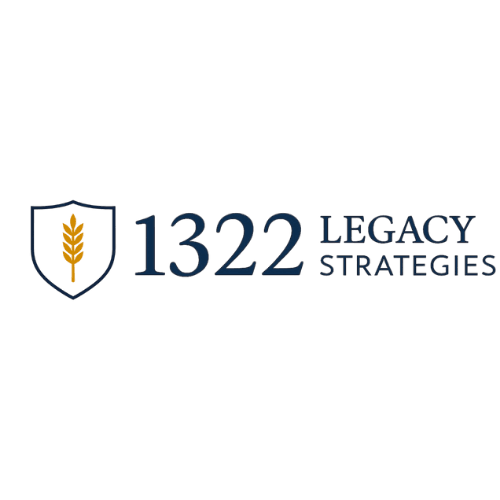In 2025, we live in the age of algorithms.
Market movements are forecasted through models more complex than most can interpret. “Financial advice” is now often machine-driven — a sterile blend of Monte Carlo simulations, asset-allocation rules, and institutionalized optimism.
And yet, despite all this technological sophistication, families still feel uncertain.
They’ve followed the plan. Funded the 401(k). Diversified their assets. But something feels fragile beneath it all.
We believe that feeling is real. And we believe it comes from this core truth:
Most financial plans are built on a false understanding of economics — and a false promise of certainty.
Economics Is Not Physics. Your Life Is Not a Lab.
Mainstream financial advice relies heavily on models — models that treat economics like a physical science. The assumption is that if we collect enough data and regress enough variables, we can predict outcomes. Like weather forecasts. Like physics equations.
But economics is not physics.
As the Mises Institute recently reminded us, economic behavior is not governed by inviolable laws of nature. People are not particles. Households are not molecules. Markets are dynamic ecosystems shaped by expectations, human action, and shifting values — not fixed constants.
And yet, most financial planning rests on a foundation of assumptions:
- You’ll retire at a certain age.
- Your portfolio will average a certain return.
- Inflation will behave within a certain band.
- The world will keep moving according to the spreadsheet.
But life doesn’t follow spreadsheets. And legacy cannot be calculated into a cell.
The Myth of the “Plan”
Ryan Griggs, a student of Austrian capital theory and a steward of Nelson Nash’s Infinite Banking legacy, makes this distinction plain:
“A financial plan is reactive. It is an attempt to optimize variables you don’t control. A financial strategy, on the other hand, is about owning the means of action. It’s about controlling what you can control — your capital, your liquidity, your decision rights.”
At 1322, we don’t build plans. We build strategies.
A plan is like a printed map from 1997. It only works if the roads haven’t changed.
A strategy is a compass, not a map. It equips you to adapt — because we know the terrain will change. Recessions. Tax law shifts. Aging parents. Birth of grandchildren. New callings.
The Austrian View: Capital Is Not Just “Stuff”
Modern financial theory treats capital as a fixed pile of things — stocks, bonds, real estate. But the Austrian view, and Griggs’s work in particular, remind us that capital is abstract and monetary. It is not just what you own — it’s how you own it, and how freely it flows to meet future needs.
In other words:
True capital is the capacity to act — now and in the future — with control and clarity.
Traditional advisors often push clients toward accumulation. But at 1322, we focus on capitalization — building structures of financial stewardship that honor liquidity, control, and legacy.
We teach families to “become their own banker” not as a product pitch, but as a posture of leadership. We equip stewards to reclaim the banking function — to build capital systems that are:
- Private
- Liquid
- Stable
- Generational
This isn’t about chasing returns. It’s about building your family’s economic engine — one that you own, understand, and can pass on.
The Failure of Predictive Finance
If financial planning were truly scientific, then 2008 wouldn’t have happened. Neither would 2020. Or the current volatility of 2025.
What’s the lesson?
Prediction is not stewardship. And dependency on models is not the same as financial wisdom.
At 1322, we honor the unpredictability of life by building flexible frameworks — not rigid forecasts. We guide families toward strategies that:
- Emphasize capital control over rate chasing.
- Value liquidity more than speculation.
- Prioritize income stability over net worth headlines.
- Anchor decisions in faith and family — not financial media cycles.
We reject the myth that a spreadsheet can secure your future. But we do believe that faithful stewardship can.
A Legacy Is Not a Probability Curve
A good man leaves an inheritance to his children’s children.
Not a Monte Carlo simulation. Not a projection. A blessing.
That’s why our work begins with discovery — hearing your story, your values, your hopes. Then we design strategies — not just portfolios — that help you steward your blessings in alignment with your calling.
We don't pretend to predict the market. But we do prepare families to lead their legacy journey with wisdom, strength, and peace.
Because in the end, legacy isn’t found in data.
It’s found in the decisions we make today — about how we steward what’s been entrusted to us.
This Is the 1322 Difference
Control your capital. Build your legacy.
That’s not a slogan. It’s a philosophy.
If you’ve grown tired of formulas that don’t fit your life… if you sense there must be a wiser way to prepare for the future… you’re not alone.
We invite you to explore a new framework. One built not on abstraction, but on action. Not on prediction, but on stewardship.
This isn’t just finance. This is legacy by design.


